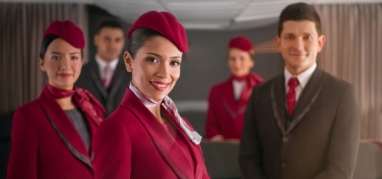

A diploma in cabin crew typically provides individuals with the necessary knowledge and skills to pursue a career as a flight attendant or cabin crew member in the aviation industry. These diploma programs often cover a range of topics related to airline operations, customer service, safety procedures, and emergency protocols.
Here's an overview of what you might expect to learn in a cabin crew diploma program:
Aviation Industry Overview: Understanding the structure and dynamics of the airline industry, including its history, key players, regulations, and trends.
Customer Service Skills: Developing strong interpersonal skills to effectively communicate with passengers, handle inquiries and requests, and provide exceptional service throughout the flight.
Safety and Emergency Procedures: Learning the necessary safety protocols, emergency evacuation procedures, and first aid techniques to ensure the well-being of passengers during flights.
Aircraft Familiarization: Becoming familiar with different types of aircraft, cabin layouts, equipment location, and operating systems to perform duties efficiently and assist passengers effectively.
Cultural Sensitivity and Diversity Training: Understanding and respecting cultural differences and diversity among passengers to provide inclusive and respectful service to all travelers.
Security Awareness: Understanding security procedures and regulations to ensure the safety and security of passengers and crew members throughout the flight.
Crisis Management: Developing skills to handle challenging situations and emergencies calmly and efficiently, including dealing with disruptive passengers, medical incidents, and other unexpected events.
Personal Grooming and Presentation: Maintaining a professional appearance and adhering to grooming standards set by the airline to represent the brand positively and create a favorable impression on passengers.
Teamwork and Collaboration: Working effectively as part of a team with other cabin crew members, pilots, and ground staff to ensure smooth operations and excellent customer service.
Communication and Language Skills: Enhancing communication skills, including language proficiency (especially English, as it's often the international language of aviation) and clear verbal communication with passengers and crew members.
These diploma programs may vary in duration and depth of coverage depending on the institution offering the training. Upon completion of the program, graduates typically receive a diploma or certificate that can help them pursue employment opportunities with airlines or other companies in the aviation industry.
